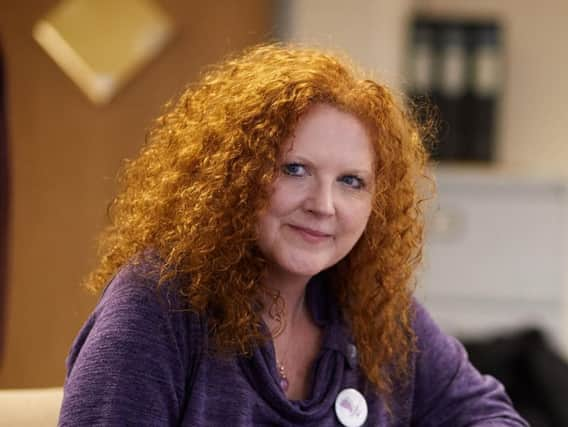Is this another Gentleman Jack? Wakefield researchers explore journals and will of Clara Clarkson 'a lover of women'


Halifax landowner Anne Lister is probably best known for her lesbian relationships, recorded, often in code, in diaries documenting her life. Her candid writing of her love affairs leave little doubt she was gay - but over in Wakefield, the words of another woman of Anne’s time leave much more to interpretation.
Born in 1811 to a wealthy family, who had their money in the corn trade and cotton mills, Clara Clarkson kept a journal from the age of 15, recording entries at least once a day.
Advertisement
Hide AdAdvertisement
Hide AdThe pages, according to researchers from the Forgotten Women of Wakefield (FWW) project, which is bringing to light the lives of influential females from the city’s past, are “full of comment and gossip, and observations personal and public, and give a detailed insight into the life of a woman who was restrained, repressed and full of contradiction”.
Trailblazer
Advertisement
Hide AdAdvertisement
Hide AdClara, they say, was a trailblazer, an early suffragist and Unitarian who rejected social conventions around class and gender and publicly embraced the acceptance of all faiths.
“Unitarian folklore was all about her being a lover of women,” explains Sarah Cobham, who leads the FWW group. “Anne Lister’s diary was so explicit that we know she was gay. We can’t say Clara was gay but we can say she was a lover and protector of women.”
The group says her “fierce loyalty” and friendship with women is evident in her journals, which, like Anne Lister, she wrote in code.
After her death, the trustees of Clara’s will were bombarded with requests for specific dated volumes to be destroyed, whilst the remaining went to her cousin’s daughter, who broke the cipher, but burnt several more editions due to what she felt was “indiscretion or unkindness”.
Advertisement
Hide AdAdvertisement
Hide AdFour ended up, years down the line, with distant relative Ann Jacques, who in 1971 published Merrie Wakefield, a book based on some of Clara’s diaries, though the research group claim it was “highly sanitised”.
Gifts in will
The group have also studied the will of Clara, who died in 1889. It split her considerable fortune, noting that any gift taken by a woman under the agreement would be for her “sole and separate use free from the debts control and insolvency of any husband”.
One recipient was Ann Ashton, referred to as ‘Emma’ in the 1971 book, who is listed as her servant. It is thought she joined the household after Clara’s mother died and is referred to as Clara’s ‘companion’ on the back of a photograph held in Wakefield Library archives.
“Clara’s voice is strong and resolute when she names Ann Ashton not once, but six times in her will,” says group researcher Helga Fox. “Ann was gifted everything that made up their home together...and the final third was dedicated almost solely to Ann’s financial wellbeing.”
Advertisement
Hide AdAdvertisement
Hide AdShe was gifted a £1,000 annuity, held in a trust to enable her to buy a freehold property, and a lifetime yearly annuity of £1,000 - more than £134,000 in today’s money, administered by trustees, ensuring Ann was well cared for until her own death.
'Life partner'
“I’m very confident that Ann Ashton was a life partner,” says Sarah. “Because it was extraordinary to leave all that money to a servant. It was completely unheard of.”
Describing Clara as a “rebel” who did not conform to Victorian social expectations, she says a legacy has been left in the form of her diary writing, which offers a glimpse into the “parlour life” of people in Wakefield at the time.
“But I think her real legacy is her will,” she adds, “and the fact that, I think, she made it clear there that she loved one woman her whole life and made sure she was kept financially secure.”
The group plans to erect a blue plaque for Clara in November, supported by the Wakefield Westgate Unitarian Chapel, where she was buried.